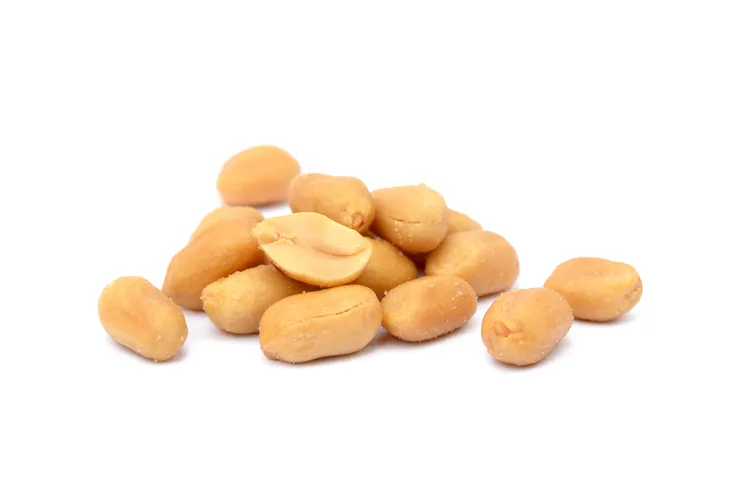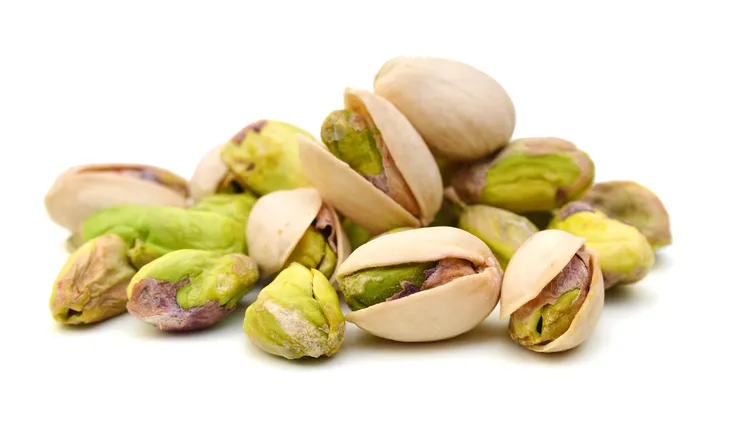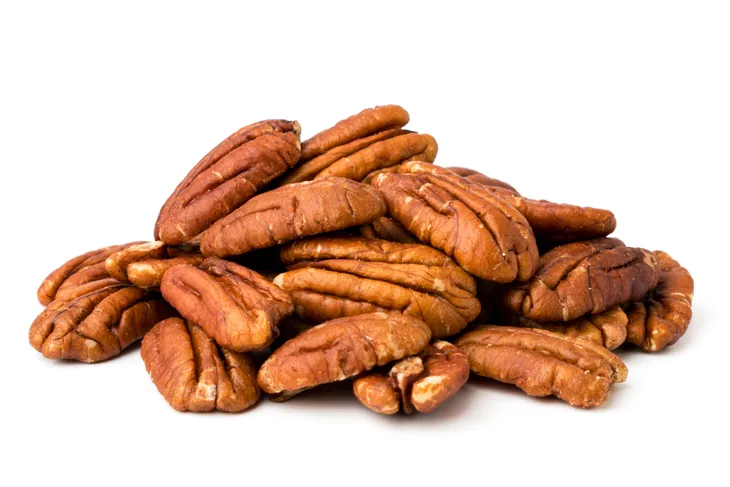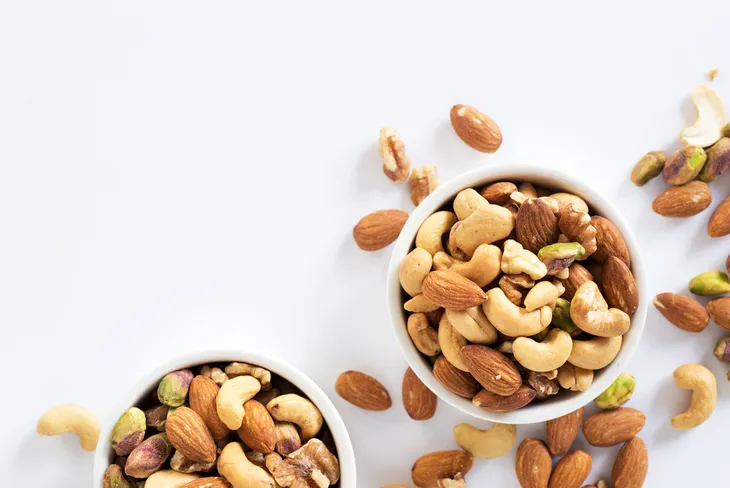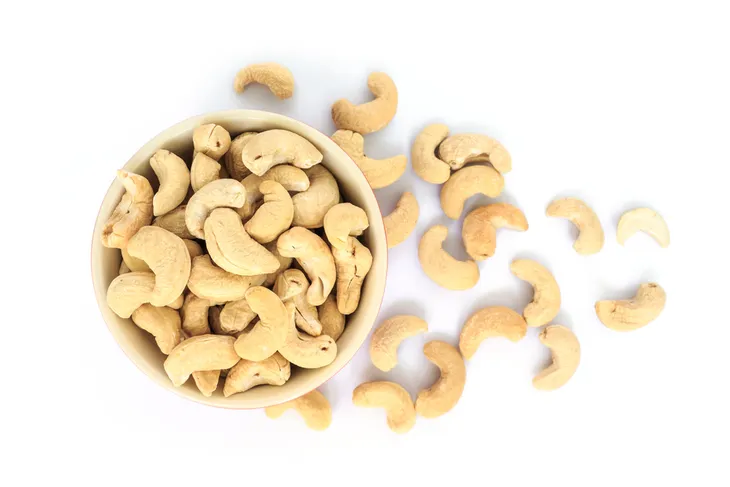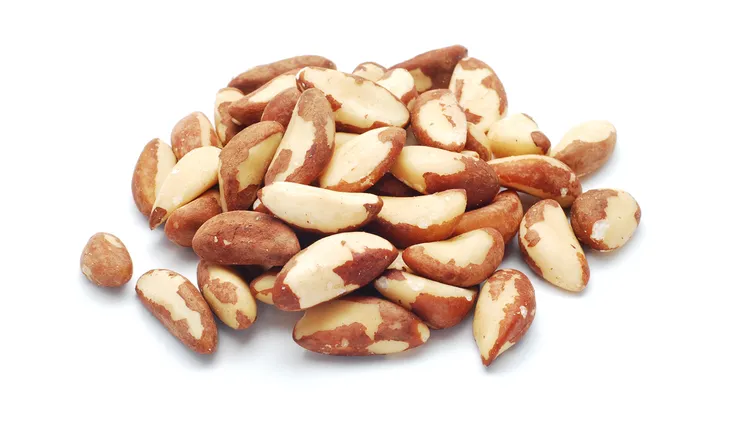You probably reach for a handful of raw nuts (unsalted, unroasted) when you’re looking for a heart-healthy snack filled with good fats, fiber, protein, and a boost of vitamins. However, some nuts are better than others when it comes to providing certain body benefits.
Munch on the eight reasons why you should go nutty for these raw nuts, in moderation, of course…
Peanuts
If you’re looking for some literal “smart food” while studying, reach for a handful of peanuts. These legumes get props for protecting aging brains from cognitive decline. Not only are they high in the mineral folate, which boosts brain development and health—peanuts are also high in healthy omega-6 fatty acids, which form the foundation of a well functioning brain.
Pistachios
While all nuts should be consumed in moderation due to their high (albeit healthy) fat content, some promote weight loss much better than others. Pistachios, for instance, contribute enough omega-3 fatty acids, protein, and fiber to keep you full after just a small handful—which means these nuts work well to suppress appetite (and those tempting mid-afternoon snack attacks).
In fact, the Academy of Nutrition and Dietetics recommends pistachios as a healthful snack due to the fact that you can munch 46 nuts and get 6-grams of protein while only consuming 160-calories!
Almonds
If you have issues with painful inflammation, almonds might offer some respite thanks to their high content of vitamin E—an antioxidant that lessens painful swelling associated with many chronic conditions (i.e., arthritis and many autoimmune diseases). Luckily, almonds are really versatile and can be added to cereal, oats, baking, salads, and casseroles quite seamlessly.
Walnuts
Olive oil or walnuts? It turns out that the nut is just as effective as the oil when it comes to protecting the heart thanks to its high volumes of alpha linoleic acid (or ALA). A small research study conducted recently at Yale University, discovered that overweight study participants who ate a diet rich in walnuts (consuming about 8 walnuts per day) experienced improved heart arrhythmia and endothelial function, which translates to better blood pressure control and reduced inflammation and oxidation in the arteries overall. Walnuts are also known for helping to maintain brain health.
Pecans
Guys, if you’re concerned about prostate health, pecans are the snack for you! The big reason is beta-sitosterol, a type of plant steroid that protects the male prostate from becoming enlarged—a condition called BPH, or Benign Prostatic Hyperplasia—which can result in obstruction, weakness, or inflammation of the bladder, as well as urinary tract infections.
Mixed Nuts
When it comes to deciding the healthiest nut of all, it turns out that a mixed batch is the best medicine for overall health and wellness. Indeed, research published in the Harvard Medical School’s Family Health Guide pointed to a mix of all nuts (i.e., almonds, peanuts, cashews, pecans, walnuts, Brazil nuts, and pistachios), providing they are unsalted and raw, for the best and most diverse balance of vitamins and nutrients.
Cashews
If you’re looking to score the title of Jeopardy Champion, munching on cashews might be a smart move. The nut is particularly rich in iron (which promotes oxygen delivery) and magnesium (which protects the brain from memory loss while promoting information retention and recall).
According to research published in the journal, Neuron, if you chomp down on just 1 ounce of cashews per day, you’ll boost your brain power by 25-percent!
Brazil Nuts
Too much of a good thing is, well, not too good at all! Such is the case with the meaty Brazil nut, which provides an excellent source of selenium, a mineral that guards against prostate cancer.
However, according to the findings of a Epidemiology of Vascular Ageing study conducted in France and published by the National Institutes of Health, high selenium levels can result in impaired fasting glucose (or type 2 diabetes), and a single Brazil nut contains an adequate daily dose of the mineral.

